Over the past few years, artist Dries Depoorter has been exploring issues of privacy in ways that are at times thought-provoking and at times almost comical (often both.) He started by looking into his own privacy, either through a program that was taking and sharing online one screenshot a day of his computer screen at a random time or through a website that used Google Streetview to disclose in real time the artist’s exact location and direction.
His recent works explore how other people are willing to surrender their privacy for the sake of entertainment, safety or just the prospect of a one night stand. One of the outcomes of this approach is the recently released and much–discussed Tinder In which puts side by side and to often surprising outcomes the profile pictures that an individual selects to represent himself or herself on two platforms that are at opposite ends of the social spectrum: LinkedIn & Tinder.
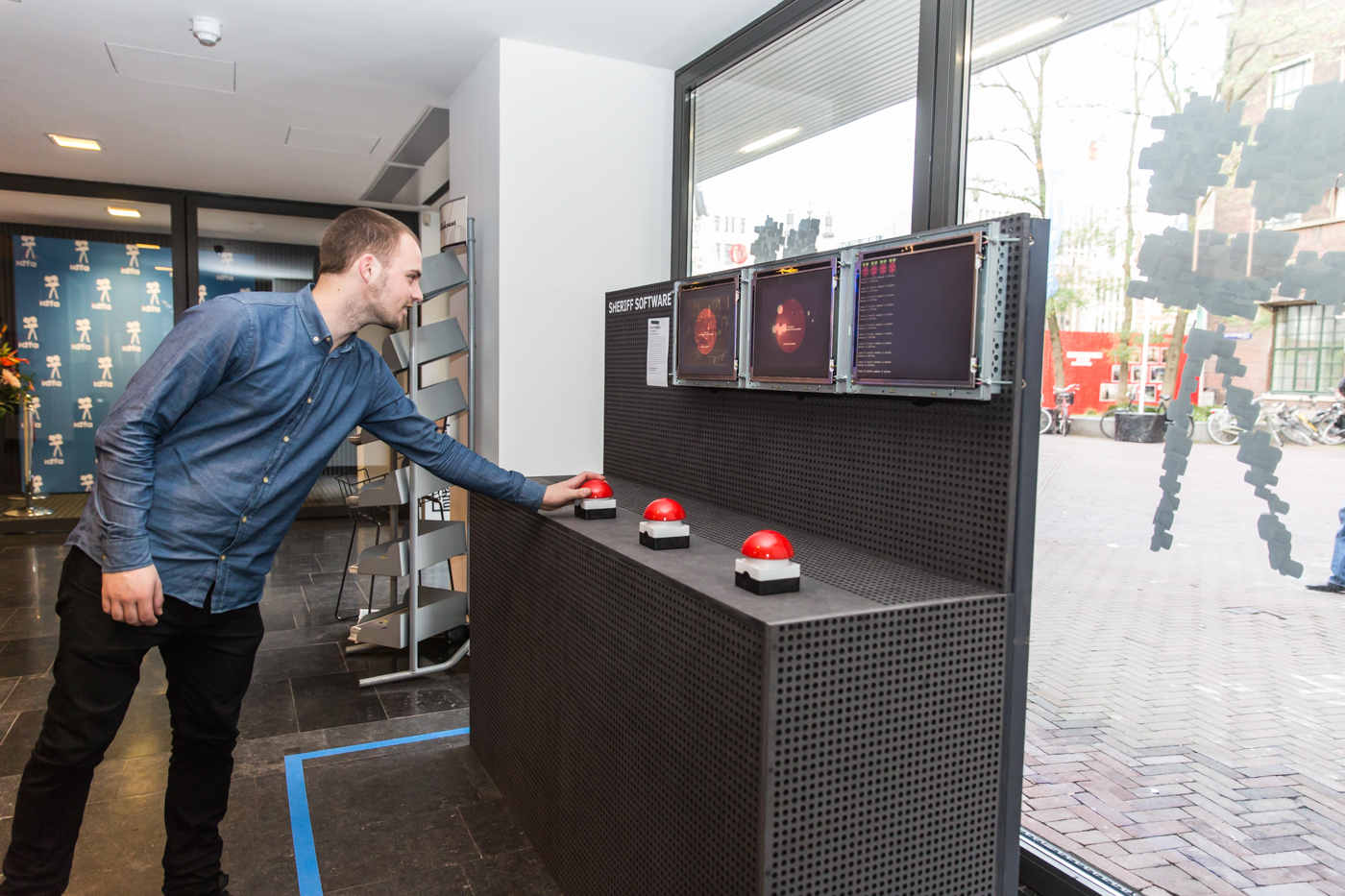
Installation view of Sheriff Software (JayWalking) at the DocLab: Seamless Reality exhibition, part of IDFA International Documentary Filmfestival Amsterdam. Photo credit: Nichon Glerum for IDFA DoLab
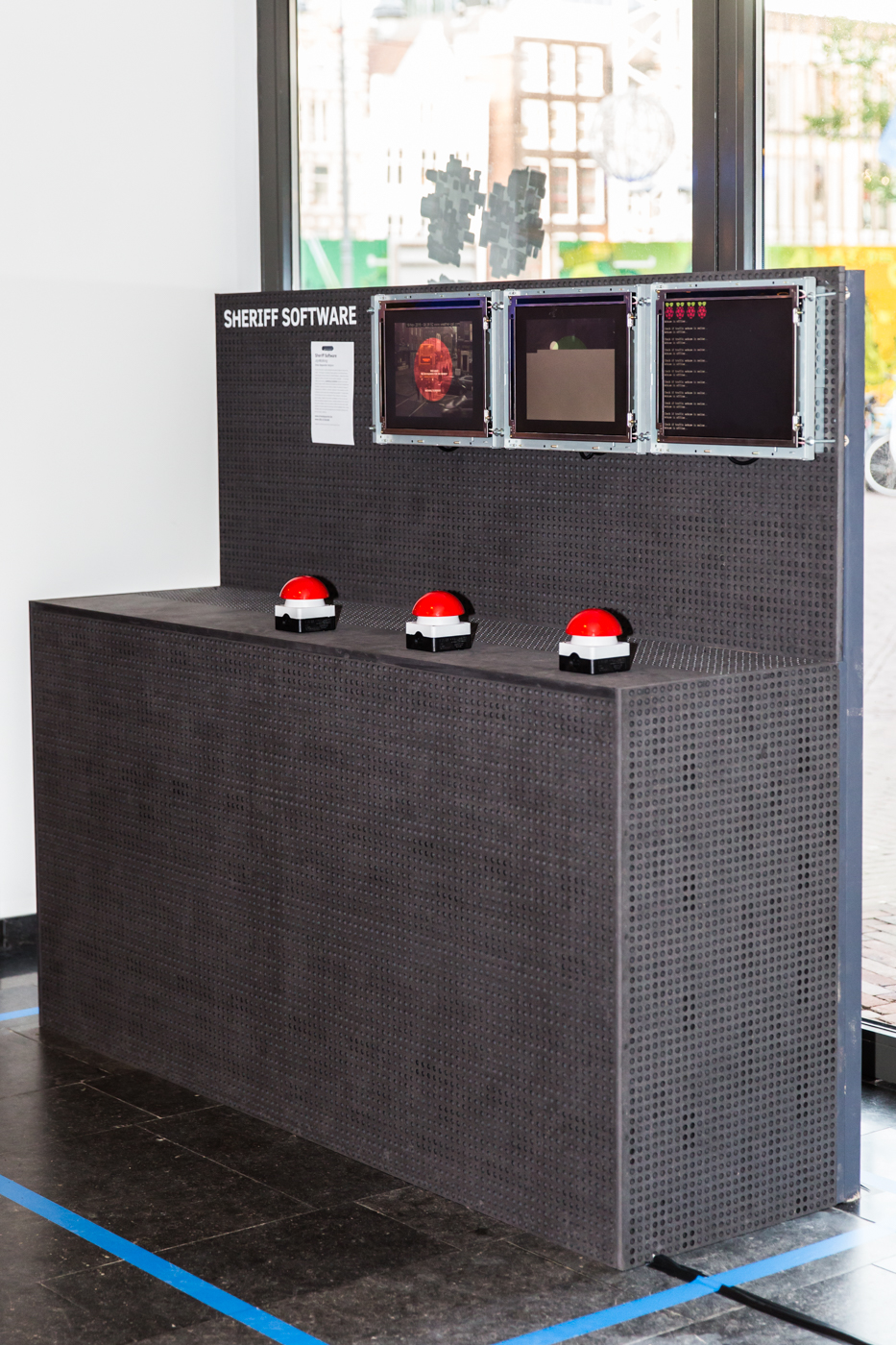
Installation view of Sheriff Software (JayWalking) at the DocLab: Seamless Reality exhibition, part of IDFA International Documentary Filmfestival Amsterdam. Photo credit: Nichon Glerum for IDFA DoLab
Depoorter’s new investigation into privacy will premiere this week at the DocLab: Seamless Reality exhibition in Amsterdam (more practical info below.) The set of works, grouped under the name Sheriff Software, invites people to not just be the object of the attentions of the CCTV cameras that relentlessly gaze upon us but also to use them, turn the scrutiny back at the police and even play traffic cop.
The first piece in the series is JayWalking, a software that scans traffic lights at intersections in different countries, check whether the light is red or green and spots anyone braving the red light and jaywalking. Visitors of DocLab are given the opportunity to witness any infraction and decide whether or not to send to the police a screenshot that proves the transgression. The consequence of the decision of the public is made even more tangible by a counter at the bottom of the screen that shows how much the fines are for the offense in the country where it’s being committed.
Will we report the unsuspecting jaywalker? Will we click on the button that can send a screenshot of the violation to the nearest police station?
Are we going to empathize with our fellow pedestrians? Or are we going to point the finger and divulge their minor crimes? I doubt that people at DocLab will be willing to snitch on jaywalkers when there is a group of people around. But how different would it be if they were alone at the moment of taking the decision? JayWalking reminded me of an experiment that took place in 2006 when Shoreditch residents were given access to live CCTV footage of their neighbourhood on their own tv sets. People were invited to tune in the “community safety channel” and report any suspicious behaviour by text to the local police. Apparently, local CCTV cameras attracted viewing figures with an “equivalent reach of prime time, week-day broadcast programming”.
Then of course, there’s the no so minor detail of face recognition systems. I guess the JayWalking screenshots will only be showing the blurry silhouette of the offender. But what will happen if one day/when surveillance cameras are equipped with automated facial recognition technology?
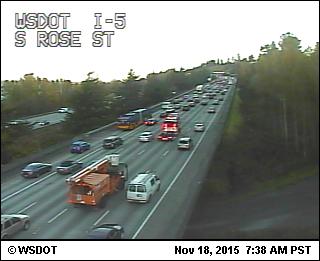 While Jaywalking enables people to spy on other people, the second work in the Sheriff Software series lets people watch the watchers. Called Seattle Crime Cams, the piece relies on the Seattle Area Traffic and Cameras system which monitors city traffic.
While Jaywalking enables people to spy on other people, the second work in the Sheriff Software series lets people watch the watchers. Called Seattle Crime Cams, the piece relies on the Seattle Area Traffic and Cameras system which monitors city traffic.
Seattle not only shares the live stream of its CCTV network, it also share the dispatch from the Seattle Police Department radio. Depoorter’s Seattle Crime Cams will connect police calls with the live stream of the nearest webcam. The public will be able to witness incoming calls that report a traffic incident or a robbery and see how long it takes for the police to arrive at the scene.
Seattle Crime Cams turns us into ultimate long-distance disaster tourists, virtually present at the scene of the crime in Seattle. In this city, which is filled to the brim with traffic cameras, the police make the calls they receive available online. Using the latest calls, the closest live webcams are constantly zooming in on the very latest violations.
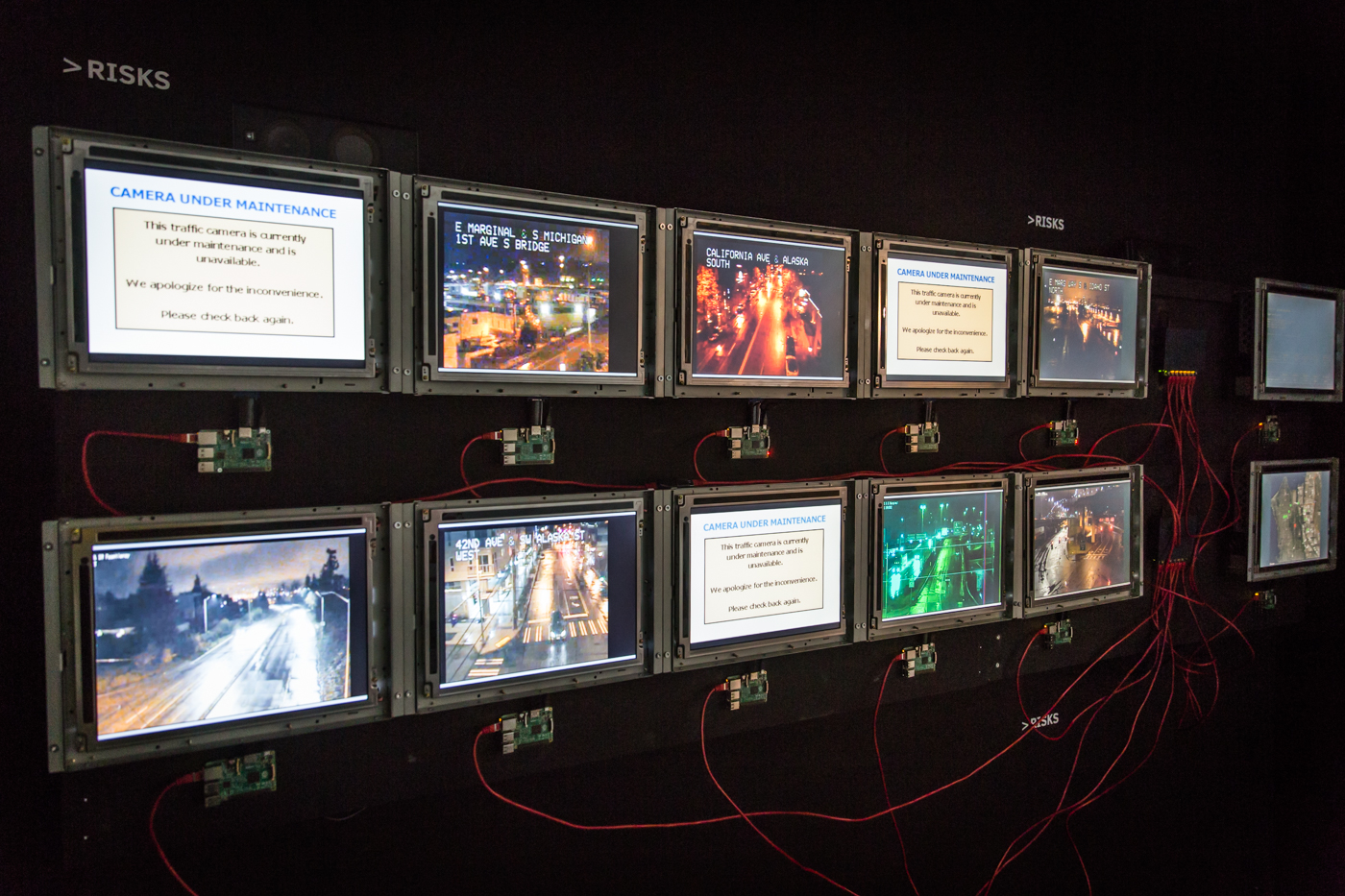
Installation view of Sheriff Software (Seattle Crime Cams) at the DocLab: Seamless Reality exhibition, part of IDFA International Documentary Filmfestival Amsterdam. Photo credit: Nichon Glerum for IDFA DoLab
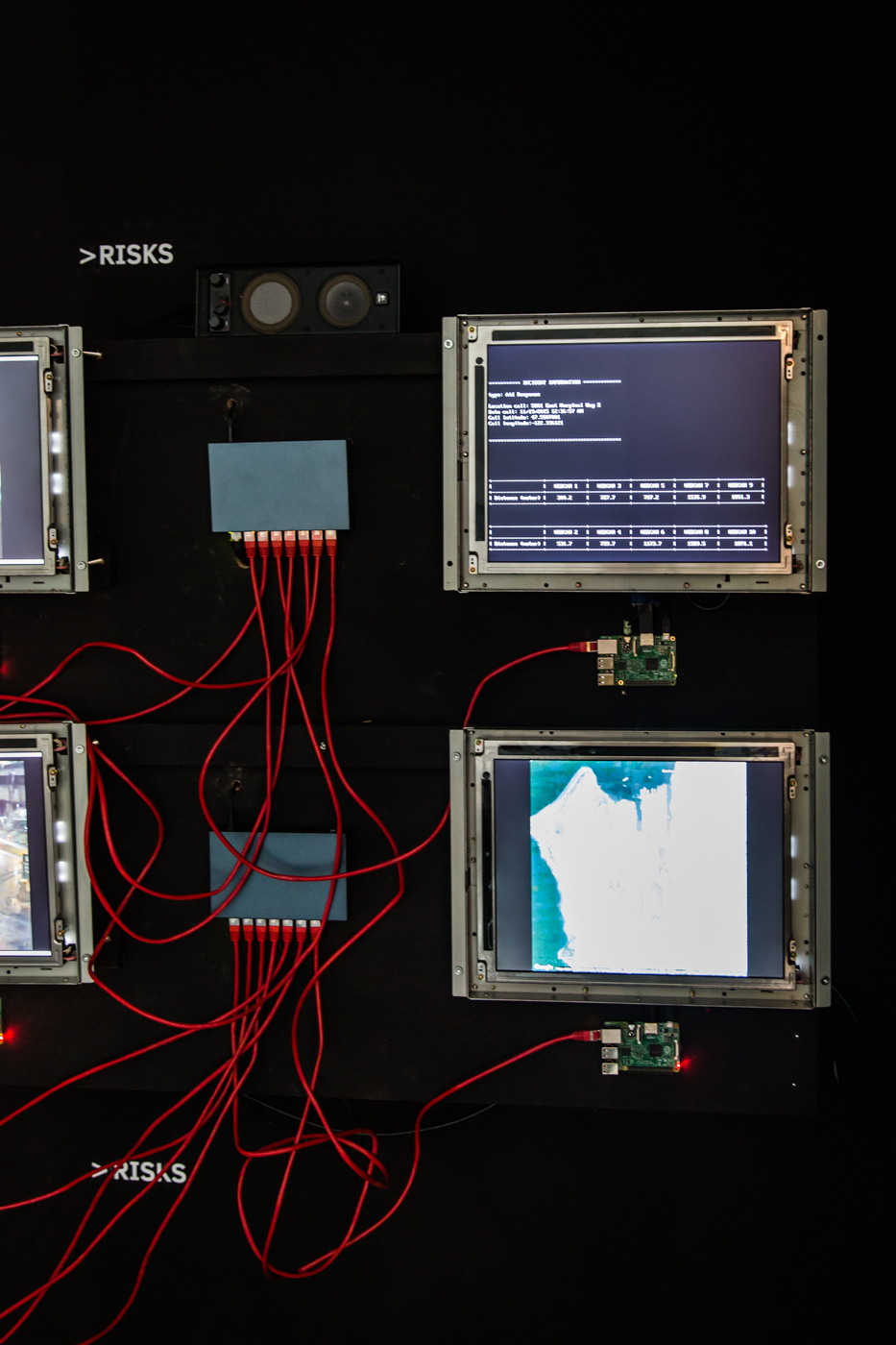
Installation view of Sheriff Software (Seattle Crime Cams) at the DocLab: Seamless Reality exhibition. Photo credit: Nichon Glerum for IDFA DoLab
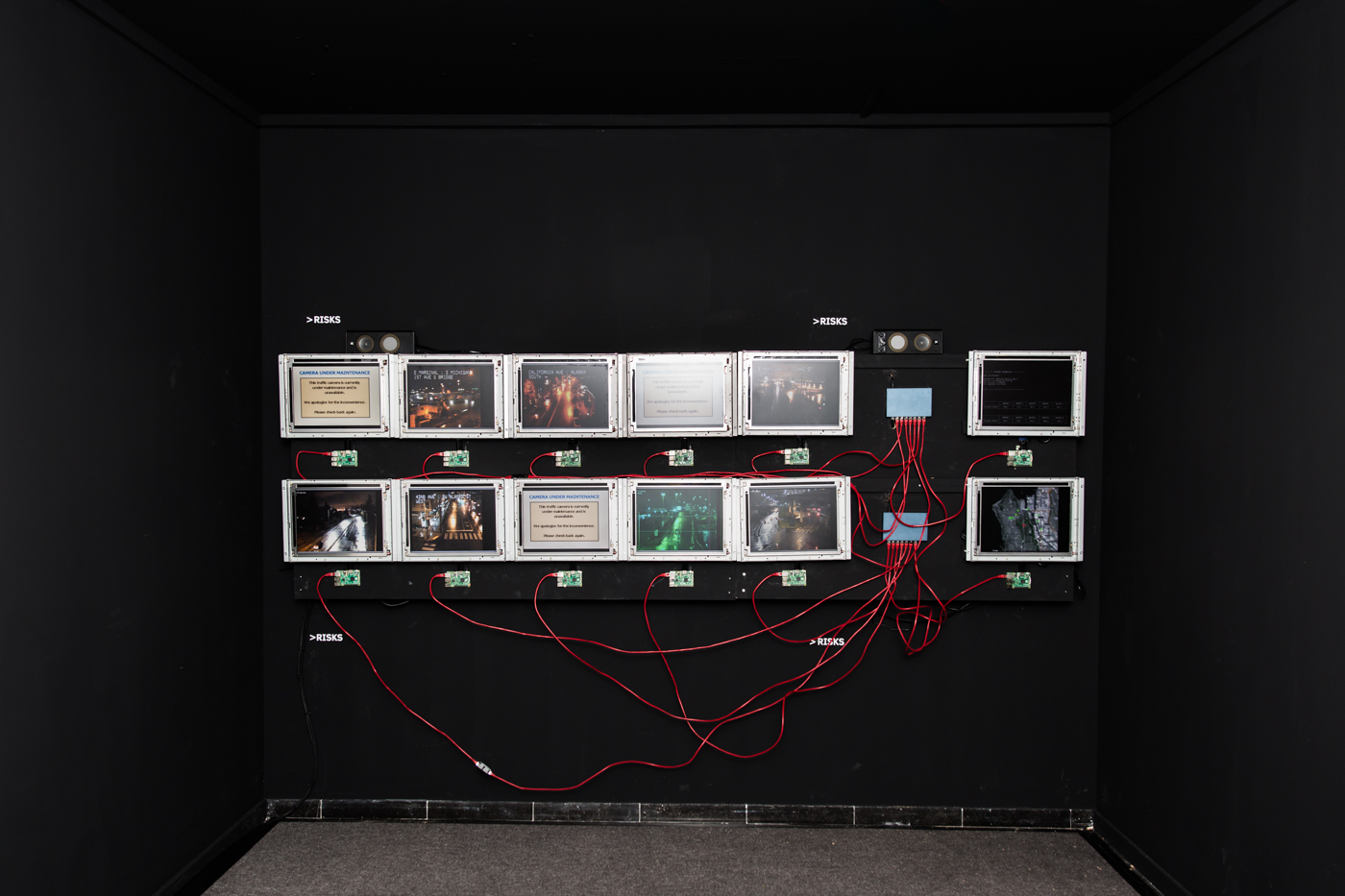
Installation view of Sheriff Software (Seattle Crime Cams) at the DocLab: Seamless Reality exhibition, part of IDFA International Documentary Filmfestival Amsterdam. Photo credit: Nichon Glerum for IDFA DoLab
Sheriff Software is premiered at IDFA DocLab, a ridiculously interesting program of screenings, performances, talks, exhibition and other events that explore the future of documentary storytelling. Think augmented reality, artificial intelligence, live cinema and interactive experiments. The installation is part of the DocLab: Seamless Reality exhibition (19-29 November) and will be also be one of the highlights of DocLab Live: The Art of Artificial Intelligence (23 November.) The program is organized by IDFA (the International Documentary Festival in Amsterdam) and the Flemish Arts Centre De Brakke Grond.
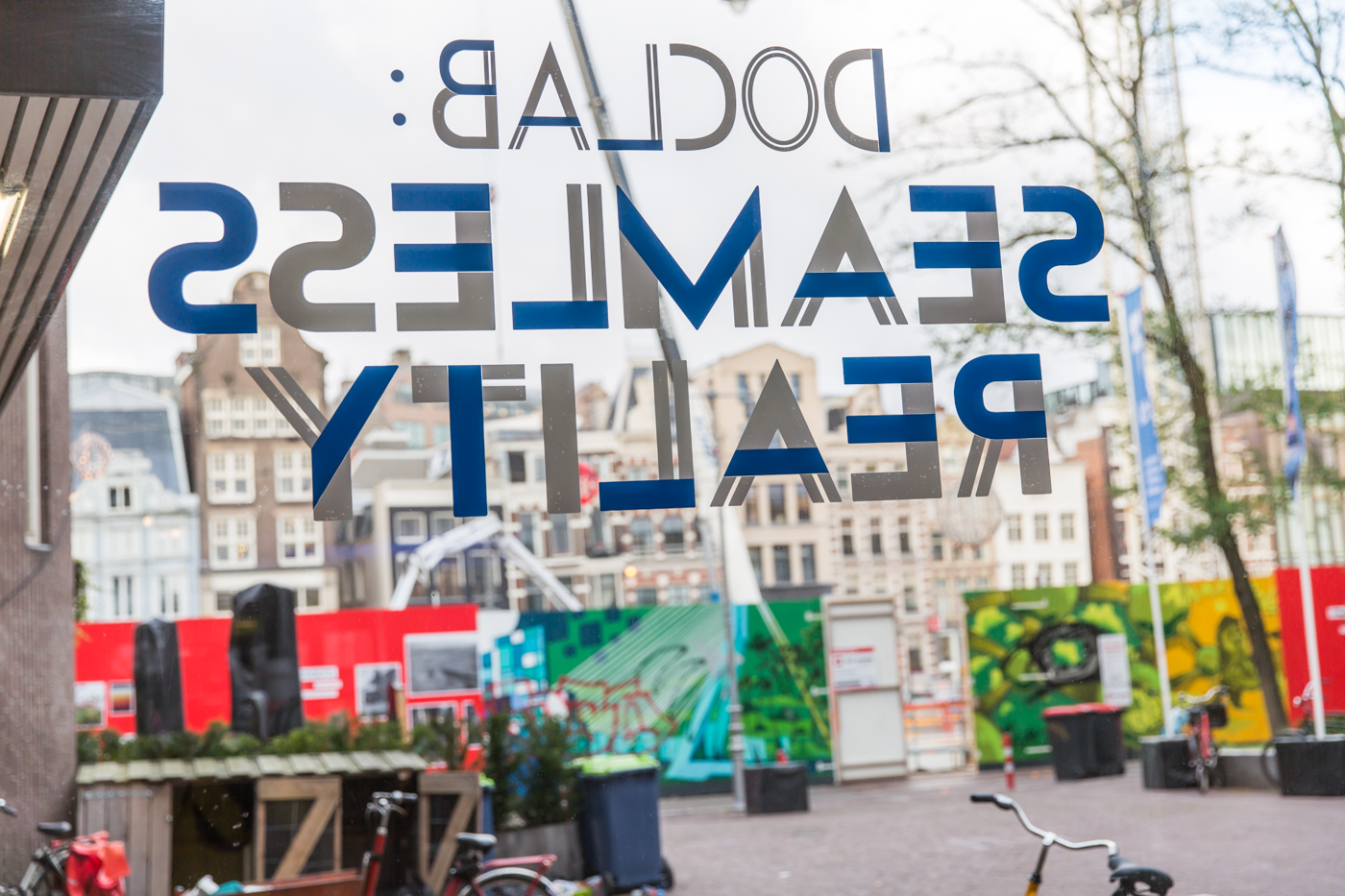
DocLab: Seamless Reality exhibition, part of IDFA International Documentary Filmfestival Amsterdam. Photo credit: Nichon Glerum for IDFA DoLab
